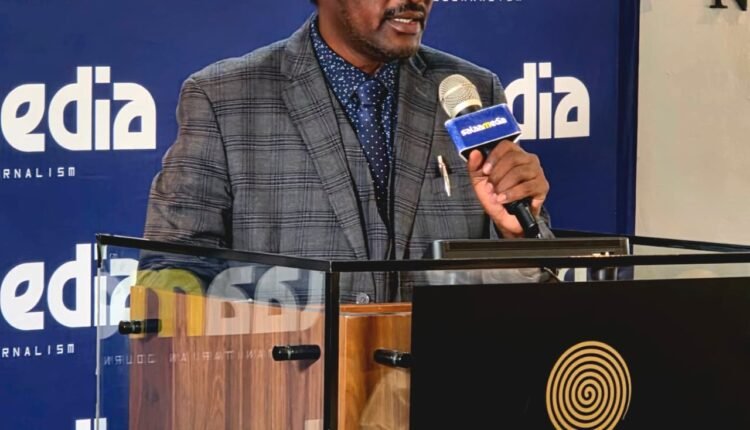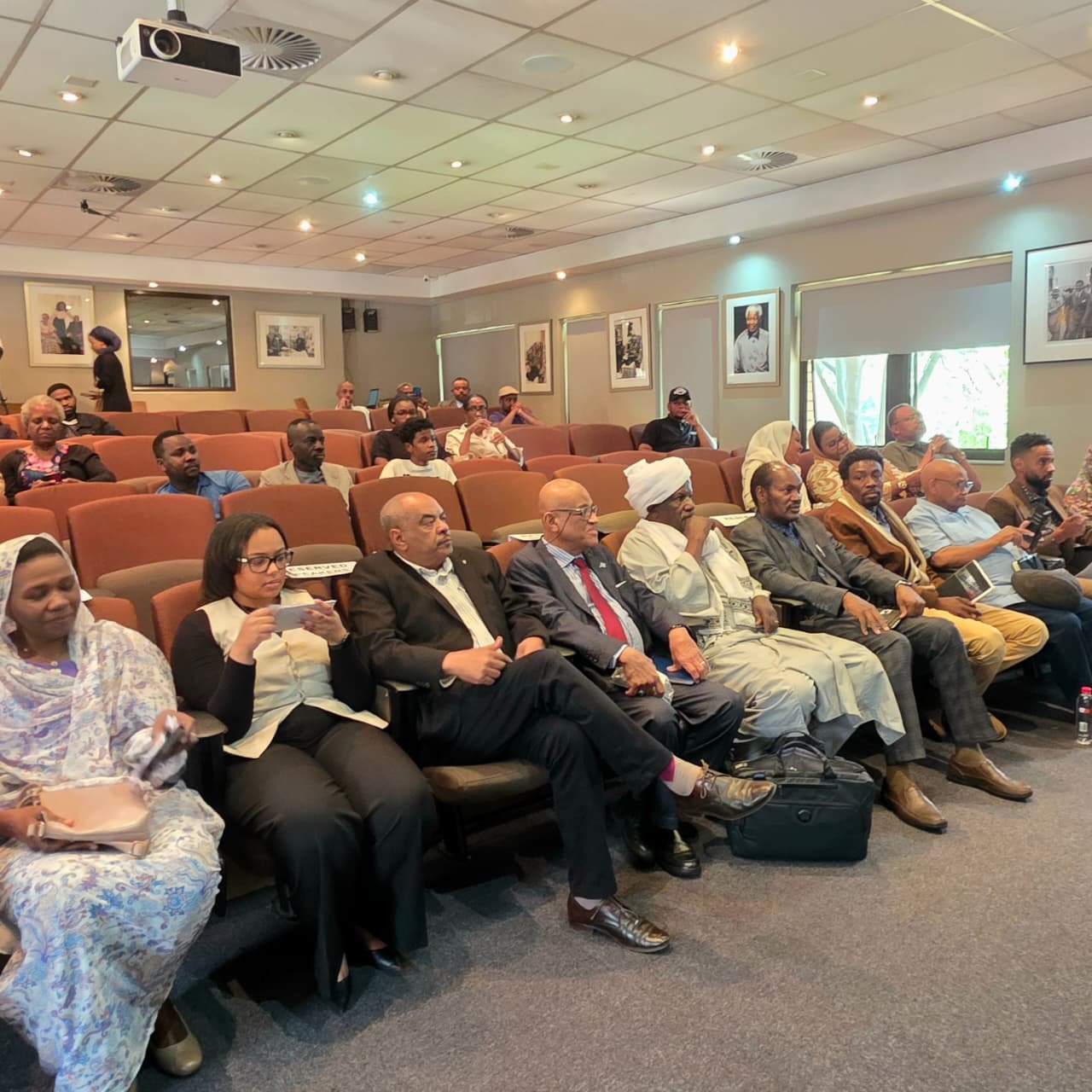Sudanese Diaspora Gathering Hosted by Two South African Institutions

Johannesburg – Ramadan Ahmed – Sudanhorizon
On Sunday, 14 September 2025, a number of Sudanese in South Africa from different political backgrounds came together under a joint initiative organised by the Nelson Mandela Foundation and Salammedia. According to the organisers, the meeting aimed to “amplify Sudanese voices and create a reflective space for the Sudanese diaspora community and South African activists to stand in solidarity under the African Union’s agenda of “Silencing the Guns”, a continental call to end armed conflicts by peaceful means.”
The meeting brought together supporters of the Sudan Armed Forces on one side and civil forces claiming neutrality on the other. Three speakers from each group presented aspects of their respective positions. In contrast, three others addressed the humanitarian crisis, focusing particularly on the suffering in El Fasher, and more generally in Kadugli and Al-Danlag.
The gathering was opened by His Excellency Willie Nhlapo, former South African Ambassador to Sudan, who delivered an extensive introduction emphasising Sudan’s importance to South Africa. He praised Sudan’s past contributions at the continental level, recalling the historical background from the Organisation of African Unity to the African Union in managing African conflicts. Ambassador Nhlapo stressed that grave crimes and blatant violations against civilians in Sudan must not be normalised in the way the world has normalised the ongoing tragedy in Palestine, noting that people wake up each morning asking only how many have died—as though lives were reduced to mere numbers. He also underlined that solutions cannot be designed abroad and imposed on the Sudanese; they must come from the Sudanese themselves. Drawing on South Africa’s own experience of conflict resolution, he highlighted the importance of prioritising the public interest.

Sharp disagreements emerged between the Sudanese groups. The “neutral” camp argued that both the army and the Rapid Support Forces (RSF) were equally guilty of crimes, and that the military establishment should step aside to make way for civilian authority. By contrast, supporters of the army maintained that the RSF’s actions in Sudan were unprecedented in both Sudanese and African history. They argued for supporting the army as the one institution uniting all Sudanese, stressing that it remains the only state institution still standing while others collapsed during the war. Audience members then made interventions with comments and questions.
Army supporters also highlighted a key issue absent from the prevailing South African narrative: the RSF’s disregard for established rules of engagement in conflicts between governments and insurgent groups. This, they argued, has made the RSF resemble armed gangs rather than a conventional rebel movement.
The importance of the meeting lay in shedding light on a narrative largely absent from South African media. This absence, participants said, has led the South African government, some African regimes, and even certain elites to treat Sudan’s situation as though it were an ordinary conflict between two sides that could simply be brought to the table and settled through a power-sharing arrangement.
The meeting concluded with remarks from a representative of the Mandela Foundation, who emphasised the necessity of peaceful solutions to conflicts, citing South Africa’s own experience. She stressed the importance of continuing dialogue to find points of agreement that could form the basis of constructive engagement. A representative from Salammedia also addressed the gathering, reaffirming their focus on the humanitarian dimension in media coverage. She underlined the need to intensify such meetings and pledged that they were ready to highlight the Sudanese issue, particularly the humanitarian aspect that deserves greater attention from decision-makers.
Shortlink: https://sudanhorizon.com/?p=7624

